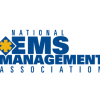By Chris Cebollero
Updated June 2015
On March 5 and 6, my professional batteries were recharged with enthusiasm, dedication and commitment to EMS. These dates marked the annual EMS on the Hill Day, sponsored by the National Association of EMTs (NAEMT). Hill Day is our opportunity to meet with lawmakers to gain their support and, hopefully, begin working on the hot-button issues that will move our field forward.
From the very beginning of my trip, I knew this would be something special, though I have to admit I was feeling a bit of nerves about going to our nation’s capitol and meeting with senators and representatives. Leaving Lambert International Airport in St. Louis, I had to quickly put my nerves aside when I found myself face-to-face with Sen. Claire McCaskill (D-Mo.) and Rep. Ann Wagner (R-Mo.). Taking advantage of this opportunity, I introduced myself and took a few minutes to chat about the issues facing EMS and asked for their support. They were both very professional and thanked me for stopping and chatting as we swapped business cards. After this brief encounter, my thoughts were: Chris: 2; nerves: 0.
On March 5, NAEMT hosted a pre-Hill meeting and reception for all participants. This meeting was a highly organized briefing on what we would be discussing the next day, as well as our schedule of events. We were given talking points and folders to leave behind for the lawmakers or staff to look over. We were carrying three distinct messages to the Hill on behalf of EMS:
Gaining support and co-sponsors for the Field Quality, Innovation, and Cost Effectiveness Improvement Act (H.R. 809). This bill addresses the challenges plaguing field EMS and the need to better fulfill public expectations so that all people needing emergency medical care in the field can depend on the highest quality of care and transport. Another key component is the establishment of the Department of Health and Human Services as the primary federal agency for EMS and trauma.
Gaining support and co-sponsors for the Veteran EMT Support Act of 2013 (H.R. 235). This bill would enact legislation to support transition of military medics to civilian EMS.
Asking members of Congress to join the Congressional EMS Caucus chaired by Rep. Tim Walz (D-Minn.). The support of a strong Congressional EMS Caucus would bring a more disciplined focus on the issues and form a more collective and cohesive bipartisan message on EMS issues and support to EMS providers nationwide.
Once the pre-Hill meeting was over, there was a great networking reception that allowed us to get to know each other. What impressed me the most was how well EMS was represented—EMS professionals from fire-based, hospital-based and private EMS agencies were all there to work toward the common goal of bringing EMS forward.
This was truly a proud moment for me. You hear all the time that EMS needs to be taken seriously and have a seat at the table, that we need to have our voices heard and that someone needs to do something about it. Well, in that room that night, close to 200 professionals were ready to converge on Capitol Hill and share the same message.
As March 6 began, we were stopped in our tracks due to Mother Nature. Washington, D.C., was expecting close to 7 inches of snow, so all federal offices were closed and our visits were put on hold. (Some delegations were allowed visits and carried our messages forward, however.) This was a bit disappointing, but we quickly realized that it is imperative that we meet with our lawmakers at their state offices. Even if they are not in town, the staff members who work in those offices are great resources to meet with and share our priorities.
So how can you get involved? Well, plan on heading to Washington, D.C., next March and join the effort. At the local level, get to know the staffers who work in your offices. You will find all the information you need to discuss the issues on the NAEMT website under the “advocacy” tab. Every state also has a designated advocacy coordinator who can help you.
We all have the responsibility to guide our career field. Remember, EMS is not even 50 years old, and there is still tons of pioneering left to do. We all can make a difference, and the time is now.
Chris Cebollero is a nationally recognized Emergency Medical Services leader, author, and advocate. Chris is a member of the John Maxwell Team and available for speaking, coaching and mentoring. Currently Chris is the Senior Partner for Cebollero & Associates, a medical consulting firm, assisting organizations in meet the challenges of tomorrow.












